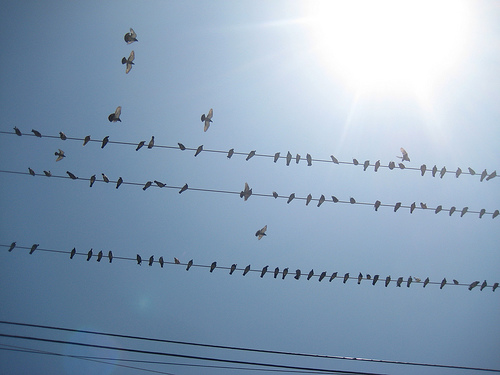I wrote these pieces a decade ago, which makes the Iraq story in particular very dated. Still, the following was an attempt to write in the style of The Onion; I hope you enjoy it.
The Shallot
Definitely Not America’s Finest News Source

Scientist: Woodchucks Would Chuck, If Only Given the Chance
MANKATO, MN – In a groundbreaking study published in the August edition of the journal Unnatural Acts, a team of scientists tackled one of the oldest zoological questions known to humankind: How much wood could a woodchuck chuck if a woodchuck could chuck wood?
“There were several problems with this project from the very beginning,” admitted team leader Dr. Adam Jacobsen of the Aphoristic Animal Institute in Mankato, Minnesota. “First, there was the conditional nature of the whole premise: “if” a woodchuck, you know. We had to determine not only whether such a feat is physically possible for the animal, but also whether they were the least bit inclined to chuck, period – that is, would a woodchuck even want to chuck wood? Or is it less a matter of woodchuck volition, and more a case of human interference with the woodchuck’s natural ability and desires: to rephrase the saying, ‘would the woodchuck chuck if only it were allowed to’?”
Semantics aside, the woodchuck’s decided lack of opposable thumbs, plus its inability to stand on its hind legs for extended periods of time, stymied researchers for months. Unsure how, or even whether, they could manage to get the creatures to launch any kind of wood product, the scientists came to the point where they were ready to “chuck the whole thing,” joked Jacobsen.
Eventually, an unnamed project scientist resorted in desperation to grinding pieces of wood into a pasty pulp, then feeding them to the woodchucks until they regurgitated – the aptly, if disturbingly, named “up-chuck” method. However, in addition to being scientifically and aesthetically unappealing, this practice was halted almost immediately by an injunction filed on behalf of the nauseous rodents by the animal activist group PETA.
PETA spokesperson Allison Yancey decried the study in general as a “travesty” and “a blatant exploitation of animals to satisfy some perverted sense of human curiosity.” Responded Jacobsen, “Well, that just goes to show you how hypocritical those so-called animal rights groups are, doesn’t it? After all, we’re the ones who set out to empower woodchucks; we were seeking to help them realize their full potential for chucking. You don’t see those ‘don’t wear fur’ types out there in the trenches. I mean, what if chucking wood turned out to be an inherent part of the woodchuck’s nature? Think of the implications!”
Previously, Jacobsen’s team had attempted a fourteen-week study of whether or not the early bird actually gets the worm. However, the results of this study were inconclusive, as it proved virtually impossible to establish a causal link between early-rising birds and early-eating birds. Said Jacobsen, “It appeared as though the birds that rose first were not necessarily hungry right away. Perhaps they were too groggy to think about procuring breakfast. Sadly, we may never know the answer: not only was our funding cut, but we had trouble finding scientists who were willing to get up as early as the birds.”
However, the woodchuck study proved more successful. Jacobsen and his partners resorted to a dual strategy, expanding the definition of “chucking” to include any sort of movement whatsoever. With one experimental group, the scientists tossed sticks and branches of various sizes at a number of woodchucks, and measured how far the limbs bounced off the animals.
The second group had it slightly easier: scientists merely placed various wood products next to the woodchucks and measured the extent to which each product was actually moved by the animal, if at all. “This, we felt,” reported Jacobsen, “best fit the original question, whether a woodchuck would have any interest in wood-chucking; and if so, would it know how to pursue that interest.”
Interestingly enough, some of them did. As reported in the article, nearly 25 percent of the woodchucks studied caused at least one piece of wood to move at least three centimeters. “As chucking goes, it’s not much,” acknowledged Jacobsen, “but we nevertheless feel that this is one small step for woodchucks, one giant leap for woodchuck-kind.”
Iraqi toy store scores profit with Plastic Bagtm
BAGHDAD – The warning on the side may read “This is Not a Toy,” but don’t tell that to Iraqi consumers. Baghdad’s newest (and, currently, only) toy store began stocking its shelves last week with the wildly popular Plastic Bagtm. Continue reading →







